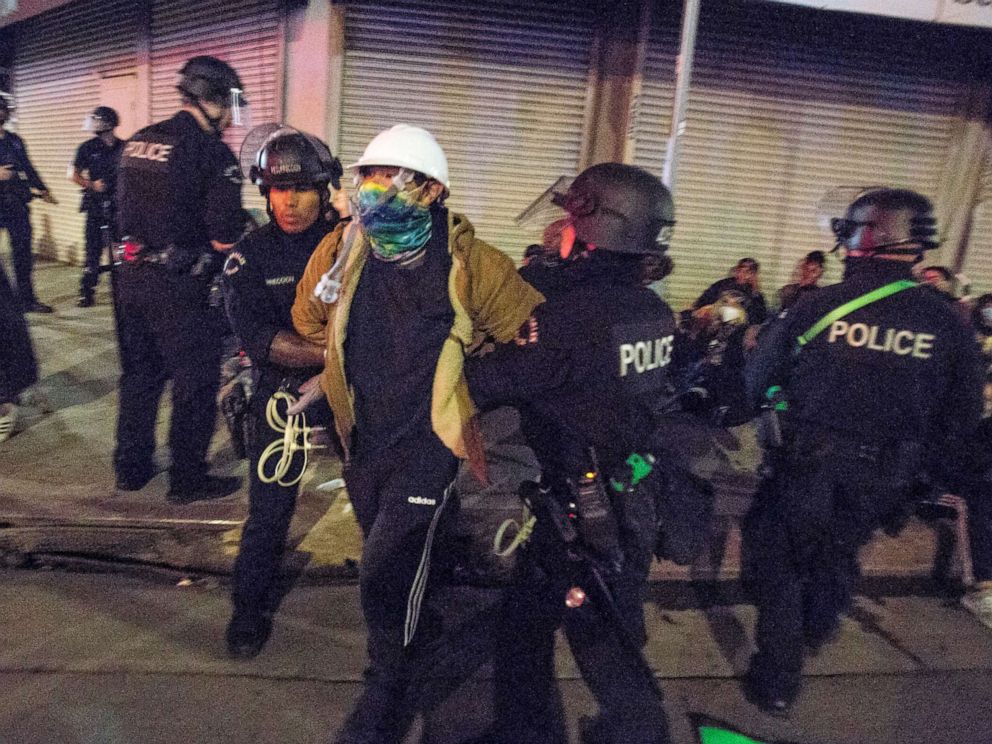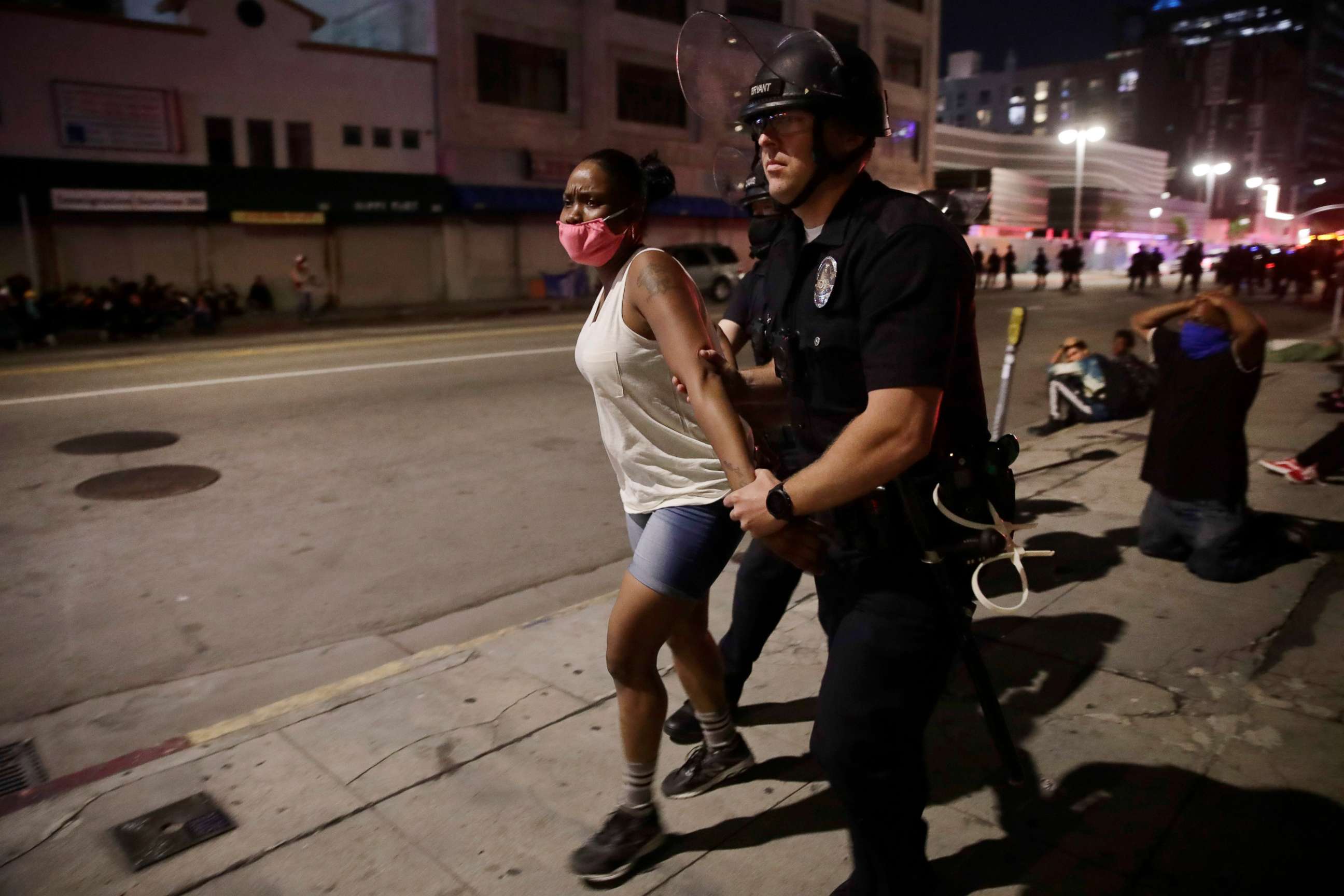ABC News analysis of police arrests nationwide reveals stark racial disparity
Black people were arrested at a rate five times more than white people in 2018.
Akil Carter, an 18-year-old black man, was on his way to work with his white grandmother in Wauwatosa, Wisconsin, when the local police pulled them over. The next thing he knew, he says, guns were drawn and he was ordered out of the car.
"I was so terrified for my life because I don't know what's going to happen next," Carter told ABC News, recalling the October 2018 incident. "When he put me down on my knees I was even more scared."
Carter was handcuffed and put in the back of a squad car. When he was finally released, police simply said there was a misunderstanding. He was stopped, officers said, because they had received a tip that a black man had stolen a white woman's car.
"I just wanted to live," Carter said. "I feel like if I was white, it would have been completely different."
In the wake of the death of George Floyd at the hands of Minneapolis police officers last month, questions about whether police officers treat black people differently than their white counterparts have taken on a new urgency.
An analysis of arrest data voluntarily reported to the FBI by thousands of city and county police departments around the country reveals that, in 800 jurisdictions, black people were arrested at a rate five times higher than white people in 2018, after accounting for the demographics of the cities and counties those police departments serve.
In 250 jurisdictions, black people were 10 times more likely to be arrested than their white counterparts.

The analysis, conducted by ABC News in collaboration with ABC-owned stations, covers a three-year period ending in 2018, from which the most recent data is available.
It does not include data from police departments in Florida or Illinois -- or the New York Police Department, the country's largest police force -- which do not report demographic data on arrests to the FBI. It also excludes police departments serving cities with fewer than five black residents.
According to Kristen Clarke, president and executive director of the National Lawyers' Committee for Civil Rights Under Law, the data reveals a "pervasive problem."
"We have to deal with the over-policing of low-income African American communities in our country," Clarke told ABC News. "When we see data that shows that African Americans are singled out, unfairly targeted, disproportionately subject to arrest and prosecution -- that should sound an alarm."
While African Americans are disproportionately the victims of homicide and those arrested for murder—critics say such statistics are only a part of the total arrest picture and do not fully explain such overall higher rates of arrests of black people in many localities.
Clarke said she doesn't buy the idea that the arrest numbers are high because there's a lot of crime in some black communities. She says the black community is treated differently.
"For example, with drug use, that there's similar rates of drug use, marijuana use among white folks and black folks," Clarke said. "White folks will get a slap on the wrist. And black folks will be the ones profiled, targeted and subject to arrest and prosecution."

Carter, meanwhile, has since filed a lawsuit against the Wauwatosa Police Department. His attorney believes he was stopped simply because he was black, an assertion the police department has denied.
"I feel like being a black, 6-foot man in America, I'm a threat," Carter said.
A hearing in Carter's case was scheduled for September, but it was delayed due to the COVID-19 pandemic. Asked whether he had watched the video that sparked the nation's latest reckoning, Carter expressed a mix of disbelief and disappointment.
"I watched some of it. I can't watch -- I want to -- but it's so hard," Carter told ABC News. "Like, this is what our world is. This is where we live. ... This is the harsh reality."
This report was featured in the Friday, June 12, 2020, episode of “Start Here,” ABC News’ daily news podcast.
"Start Here" offers a straightforward look at the day's top stories in 20 minutes. Listen for free every weekday on Apple Podcasts, Google Podcasts, Spotify, the ABC News app or wherever you get your podcasts.




